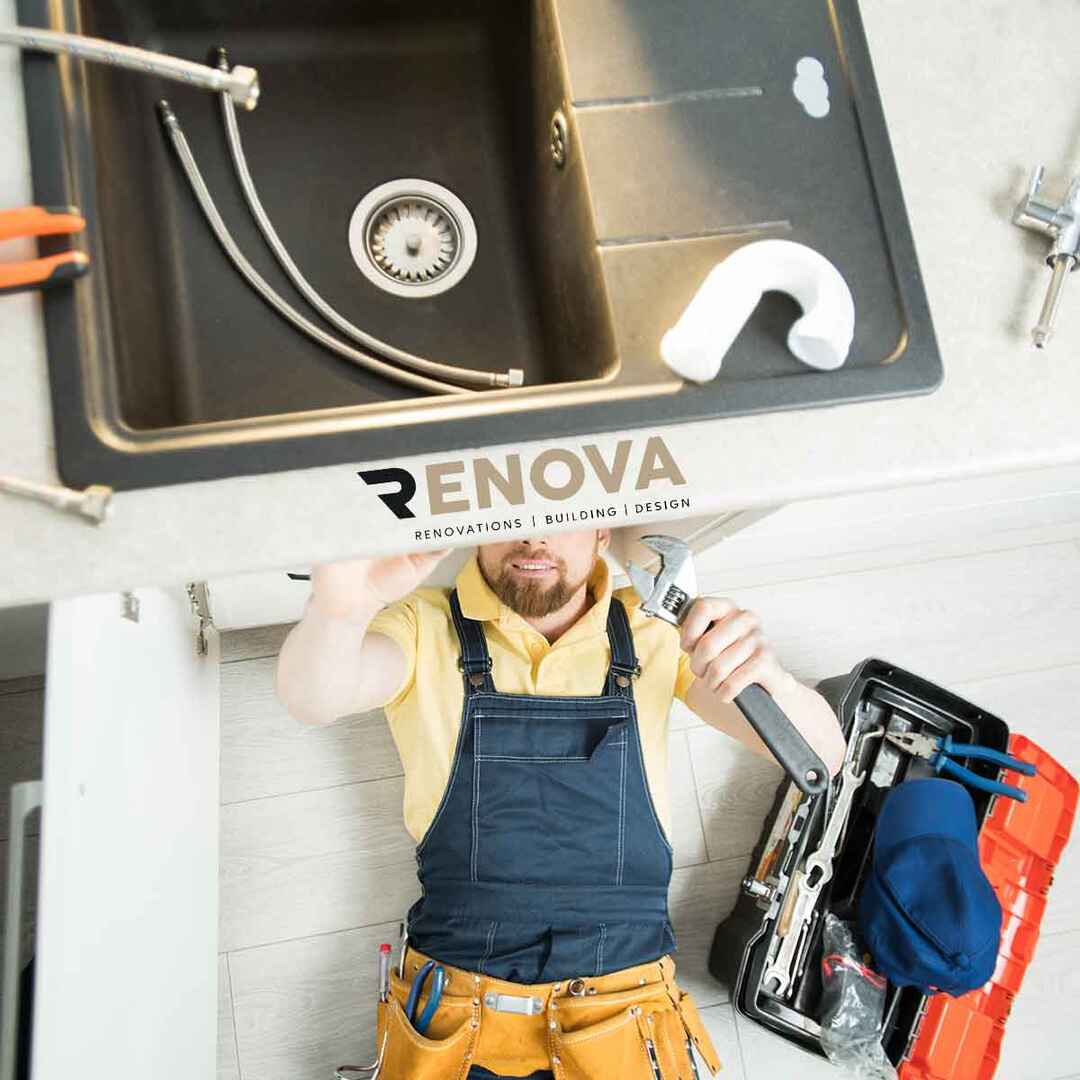Introduction
Background on the Role of a General Contractor
In the expansive world of construction, a General Contractor, commonly referred to as a GC, plays a pivotal role. Tasked with overseeing every detail of a construction project, they manage the day-to-day happenings on-site, mediate communication between clients and subcontractors, and ensure everything progresses smoothly and to specification. If a construction site is an orchestra, the General Contractor is undoubtedly the conductor, orchestrating every move to create a harmonious outcome.
RENOVA, with its wide-ranging expertise in Residential Construction Projects, Commercial Construction Projects, Custom Homes, and intricate Bathroom Renovations, exemplifies this role. Our teams, detailed on the RENOVA Team page, consist of professionals who’ve mastered the art of bringing a client’s vision to life while effectively managing budgets, schedules, and diverse teams of specialists.
A recurrent question in Florida, however, revolves around the boundaries of a General Contractor’s capabilities, especially in niche domains like plumbing. The key query: Can a general contractor do plumbing work in Florida or at least oversee them? The straightforward answer is, “Yes.” A General Contractor, especially one with the comprehensive background and resources of RENOVA, can indeed oversee or even directly handle plumbing work, given certain conditions and stipulations that we will explore further.
Importance of Licensing in Construction
While a General Contractor can oversee or directly undertake plumbing work, licensing stands as a non-negotiable requirement in the construction sector. Every state, including Florida, mandates licenses to ensure that only qualified professionals handle specific construction or renovation tasks.
Plumbing, given its intricate nature and the potential risks associated with mishandling, is governed by stringent licensing requirements. It’s not just about addressing a leaky faucet or a clogged toilet; it’s about ensuring every plumbing task aligns with state and local regulations, guaranteeing safety, efficiency, and durability. For a more granular insight into this, our Construction FAQs offers a deeper dive into licensing intricacies.
In essence, while a General Contractor can, indeed, handle plumbing tasks, licensing plays a crucial role. When residents in areas like Boca Raton, Deerfield Beach, or Delray Beach ponder, “Can a General Contractor Do Plumbing Work?”, the answer leans on the presence (or absence) of the necessary licensing and qualifications. With the right credentials, even multifaceted plumbing challenges can be handled seamlessly, ensuring the integrity, safety, and longevity of every construction project.
Licensing Requirements in Florida
The Distinction Between General Contractor and Plumbing Licenses
A well-known fact amongst professionals in the construction industry is that different types of contractors require specific licenses. In Florida, the licenses for a General Contractor and a plumber are distinct. The General Contractor license empowers professionals to manage and oversee a broad range of construction projects, from Residential Construction Projects to more complex Commercial Construction Projects. The scope of this license includes supervising work, hiring subcontractors, and ensuring that the entire process aligns with state and local regulations.
On the other hand, a plumbing license is narrowly tailored to activities that revolve around plumbing systems. These range from the simple fixing of a leaky faucet to intricate installations of plumbing in new constructions or even Bathroom Renovations. Unlike a General Contractor license, which is broader in scope, a plumbing license dives deep into the specifics of plumbing work, ensuring that the individual or company holding it is well-versed in all plumbing-related activities.
It’s also essential to recognize that within the domain of plumbing licenses, there are different levels. From apprentice plumbers, who are still learning the ropes, to journeyman plumbers, and finally, to master plumbers who’ve garnered significant experience and passed rigorous examinations, there’s a hierarchy to consider. A master plumber license is the pinnacle, certifying that the holder possesses comprehensive knowledge and expertise in handling all plumbing tasks, even the most complex ones.
The landscape of licensing in Florida, especially in the domain of construction, is thorough. Just as there are distinctions between a General Contractor and plumbing licenses, other specialized licenses exist for those asking themselves the question: Can a General Contractor Do Electrical Work in Florida? The objective is simple: ensuring that every professional is aptly qualified for the tasks they undertake, thereby ensuring the safety and satisfaction of clients.
Lastly, while the General Contractor can oversee a plethora of projects and manage various subcontractors, including plumbers, the exact execution of plumbing work requires the expertise of those holding a plumbing license. This ensures that every facet of a project, from the broader construction management to specific tasks like plumbing, is handled with expertise and precision.
Specific Requirements for a Plumbing License
Acquiring a plumbing license in Florida is not a straightforward task. The state has set rigorous criteria to ensure only the most competent professionals can execute plumbing services. Firstly, aspiring plumbers need to accumulate a certain number of hours in an apprenticeship program, under the tutelage of experienced plumbers. This hands-on experience is crucial in familiarizing them with the nuances of the profession.
In addition to hands-on experience, there’s an examination that tests both theoretical knowledge and practical skills. Topics covered include plumbing code, best practices, and even specifics on plumbing in residential structures like Custom Homes or commercial establishments. Passing this examination is non-negotiable, and it’s a testament to the plumber’s competence.
Moreover, Florida mandates that plumbers possess general liability insurance. This is to safeguard property owners from any potential property damage or other unforeseen mishaps that might occur during plumbing work. In many ways, it underscores the state’s commitment to the safety and welfare of its residents.
Importance of Hiring a Licensed Contractor
Understanding the importance of hiring a licensed contractor is paramount, especially when it comes to construction projects. A licensed general contractor, such as those from RENOVA, ensures that the work is done up to the professional standards set by the state. Licensing is a badge of credibility, showcasing that the contractor has met all the stringent requirements set by professional licensing bodies and the state.
Not only does a licensed contractor have the necessary technical skills, but they also have an in-depth understanding of local regulations. This is invaluable, especially when working on larger projects that require building permits, or when operating in areas with specific requirements like Delray Beach or Pompano Beach Highlands. Licensed contractors are adept at navigating these regulations, ensuring smooth project execution.
Additionally, a licensed contractor carries the essential general liability insurance, safeguarding property owners from potential damages. This insurance also provides peace of mind to clients, knowing that they’re protected from unforeseen expenses related to construction mishaps.
Finally, hiring a licensed contractor, especially for intricate tasks like plumbing work or bathroom renovations, guarantees quality. Their license is not just a piece of paper but a testament to their skills, years of experience, and commitment to excellence. Property owners can rest easy, knowing they’ve entrusted their project to the best in the business.
Type of Work General Contractors Can Undertake
Overview of the Scope of Work
General contractors are the maestros of the construction symphony. Their role is to oversee a construction project, whether it’s a new custom home in Boca Raton or a commercial construction in Parkland. From inception to completion, they manage personnel, source materials, liaise with clients, and ensure the project adheres to all safety and quality standards.
A General Contractor’s palette is vast. They might be working on residential construction projects one day and swiftly switching gears to commercial construction projects the next. This flexibility requires a wide range of skills, from understanding the nuances of kitchen renovations to spearheading large-scale commercial endeavors in places like Pompano Beach Highlands.
However, it’s essential to understand that a general contractor’s purview isn’t just limited to constructing structures. They are also involved in “renovations near me”. For instance, they might take on bathroom renovations in Wellington or home additions in Stuart, managing teams, budgets, and timelines to ensure the homeowner’s vision comes to life.
In essence, a general contractor is a jack-of-all-trades in the construction world. Their vast expertise, honed from various construction projects across diverse Florida locations, allows them to handle various tasks. Whether it’s a renovation contractor task in Coconut Creek or constructing custom homes in Jupiter, their adaptability is their strength.
But as with all professions, there are boundaries. And in Florida, as is the case in many parts of the United States, these boundaries are often defined by licensing. While a general contractor is capable of many things, specific tasks might require specialized knowledge, certifications, or both.
Plumbing-Related Tasks and Limitations
In Florida, the construction landscape is carefully segmented to ensure quality and safety. When it comes to plumbing work, things can get a bit intricate. Can a General Contractor Do Plumbing Work in Florida? Yes, but with some stipulations.
For minor repairs or straightforward tasks like fixing a leaky faucet or a clogged toilet, a general contractor might undertake the work directly, especially if they have had some experience with such work. It is often seen in home improvement projects in Palm Springs or smaller residential structures in Kings Point.
However, for more complex jobs, such as setting up the plumbing system for new construction or substantial overhauls in places like Deerfield Beach or Lake Worth, the skills of a licensed plumber or a plumbing contractor become crucial. Such tasks demand specialized knowledge, tools, and, most importantly, a plumbing license.
But there’s an alternative. A general contractor can hire a subcontractor plumber to do the plumbing services while overseeing the overall project. This approach ensures that the plumbing work is done by a professional who meets the specific requirements of the state, while the general contractor maintains a holistic view of the project. This is a common approach in larger projects or custom homes in Hamptons at Boca Raton.
An essential distinction to keep in mind is the difference between a general contractor doing the plumbing work and supervising it. For extensive projects, such as those seen in Lantana or Lighthouse Point, supervision of a licensed master plumber is critical. The general contractor ensures the project stays on track, while the plumber guarantees the plumbing work’s quality and compliance.
Lastly, while general contractors have the liberty to choose the extent of their involvement in plumbing tasks, property owners should always be informed. Whether it’s a home in Sandalfoot Cove or a commercial space in Parkland, ensuring clarity in roles and responsibilities avoids potential property damage and misunderstandings.
The Plumbing Apprenticeship Program
Introduction to Apprenticeship Programs
In the construction and renovation industry, the apprenticeship model stands as a testament to time-tested training. This hands-on method of learning is particularly crucial for jobs that demand precision and expertise, such as plumbing work. For a general contractor overseeing varied tasks, having apprentices on board becomes invaluable. They are trained rigorously, ensuring that when a general contractor undertakes plumbing work, the quality is never compromised.
Plumbing apprenticeships serve as a bridge, molding novices into skilled professionals. General contractors, especially in Florida’s bustling construction scene, which includes areas from Boca Raton to Stuart, rely heavily on these apprentices. Their guidance under licensed plumbers ensures that when a general contractor is involved in plumbing tasks, there’s a perfect blend of theoretical knowledge and practical execution.
Unlike traditional education, where the emphasis is mostly on theoretical learning, apprenticeships lean heavily towards on-the-job training. Apprentices, in this framework, gain the advantage of learning the tricks of the trade directly from master plumbers. This is especially beneficial when a general contractor handles intricate plumbing tasks that demand a nuanced understanding.
Florida, with its booming construction in regions like Delray Beach and renovations in Parkland, understands the value of a well-trained apprentice. Initiatives are constantly being rolled out to promote apprenticeships in plumbing. This ensures that whenever a general contractor embarks on plumbing work, there’s an assurance of a job done right, with the finesse only hands-on training can offer.
Benefits for New Construction Projects
For a general contractor overseeing new construction, the involvement of plumbing apprentices can make a significant difference. In places like Jupiter or Deerfield Beach, where new constructions dot the landscape, ensuring the plumbing work is immaculate is of paramount importance. And this is where apprentices, with their comprehensive training, step in.
Consistency in plumbing work is pivotal, more so for sprawling projects that span regions from Weston to West Palm Beach. Every time a general contractor takes on a project, the expertise of an apprentice ensures that plumbing work remains consistent and of top-notch quality. This consistency reduces future hiccups, offering peace of mind to both the general contractor and the property owner.
Engaging apprentices in new construction projects is not just about quality; it’s also about cost-effectiveness. These individuals bring to the table the latest in plumbing techniques and knowledge. For a general contractor, this means a blend of high-quality plumbing work and innovative solutions that save time and money. In areas like Lighthouse Point and Lantana, where maximizing investments is key, the skill set of a plumbing apprentice working under a general contractor is a combination that promises unparalleled value.
Comparing General Contractors to Plumbing Contractors
Differences in Years of Experience
General contractors and plumbing contractors both play significant roles in construction and renovation projects, but their backgrounds and experience often differ substantially. Let’s delve into some of the key distinctions in their professional journeys.
General contractors are the maestros of the construction world. They orchestrate every aspect of a project, from managing budgets to overseeing subcontractors. A general contractor’s experience typically spans a broad range of construction tasks, from foundational work to roofing. Over the years, they accrue diverse expertise, understanding the ins and outs of various trades. This holistic knowledge allows them to supervise multiple facets of a project seamlessly.
In contrast, plumbing contractors focus intently on one specialty: plumbing. Their years of experience are often concentrated on mastering this craft. From the intricacies of pipe installations to understanding water pressure dynamics, their expertise runs deep. This in-depth understanding ensures they handle even the most complex plumbing tasks with precision.
It’s crucial for property owners in locations like Boca Raton or Boynton Beach to recognize these differences when embarking on construction or renovation projects. While a general contractor can provide oversight on many aspects of a project, plumbing contractors bring specialized expertise to the table.
For some, the decision might lean towards hiring a general contractor, especially when undertaking a comprehensive project. In such cases, the general contractor might subcontract specific tasks to specialists, such as plumbers or electricians. However, for projects that demand intricate plumbing work, hiring a plumbing contractor directly might be a wise choice.
Common Plumbing Problems Addressed
Plumbing issues are ubiquitous, irrespective of whether you’re in Jupiter or Stuart. From dripping faucets to clogged drains, these problems can quickly escalate if not addressed promptly. Here are some common plumbing issues:
Dripping faucets are more than just an annoyance. Over time, they can lead to substantial water wastage, pushing up utility bills. Often, a worn-out washer or O-ring is the culprit, and while it might seem like a simple fix, ensuring a long-term solution requires the expertise of a professional.
Clogged toilets and drains are another frequent issue faced by homeowners. From accumulation of hair and soap in bathroom drains to excessive tissue in toilets, these blockages can lead to water backflow and potential property damage. Regular maintenance and timely intervention by a professional can prevent these common problems from spiraling.
When to Hire a Professional Plumber vs. a General Contractor
The decision to hire a plumber or a general contractor often hinges on the nature and scope of the project. Here are some guiding principles:
For large-scale construction or renovation projects that encompass various trades, a general contractor is typically the go-to professional. Their broad expertise and construction management capabilities ensure that all aspects of the project are harmoniously executed. Whether it’s a home addition in Parkland or a custom home in Sandalfoot Cove, a general contractor can seamlessly integrate plumbing work by subcontracting to a skilled plumber.
On the flip side, for specific plumbing projects or issues, a plumbing contractor is indispensable. If you’re facing a complex plumbing problem in Coral Springs or need a plumbing overhaul in Pompano Beach Highlands, a dedicated plumber brings the necessary expertise to the table.
It’s also worth noting that some minor repairs might not require the involvement of a full-fledged plumbing contractor. In such cases, a general contractor, especially one with a fair amount of experience in plumbing, might suffice. This can be particularly true for minor tasks like fixing a leaky faucet or addressing a clogged toilet in private residences.
Lastly, always consider the legal stipulations in Florida regarding who can perform certain tasks. While a general contractor can oversee and manage plumbing tasks, there might be specific requirements about who can actually execute certain plumbing jobs. Ensure you’re always in compliance by checking regulations or seeking advice from professionals like RENOVA.
Role of Property Owners and Building Permits
Understanding the Need for Building Permits
Building permits are indispensable in ensuring the safety, longevity, and quality of any construction or renovation venture. These legal documents, authorized by local governmental bodies, verify that a given project adheres to established standards and codes. Without a valid building permit, even the most competent General Contractor’s endeavors might land in murky legal waters.
Acquiring a building permit in locations such as Delray Beach or Pompano Beach Highlands is not a mere formality. It involves rigorous scrutiny of project plans by qualified inspectors. These professionals assess whether the outlined work aligns with community safety and environmental standards. RENOVA, with its esteemed Construction Management services, often assists clients in navigating this intricate permit process.
When focusing on Plumbing Work, it becomes clear why building permits are doubly essential. Plumbing installations and repairs can significantly influence a property’s water supply, sanitation, and overall safety. In places like Wellington and Lake Worth, local regulations stipulate strict guidelines for plumbing. Hence, before embarking on any plumbing project, it’s crucial to procure the necessary permits.
An experienced General Contractor, such as those from RENOVA’s team, plays a pivotal role in the permit application and acquisition process. These professionals, well-versed in local codes, streamline the application process, saving property owners both time and potential legal entanglements.
Responsibilities of Property Owners
Property owners, be it of a private residence in Parkland or a commercial space in West Palm Beach, are the keystone of any construction or renovation initiative. Their decision to hire a specific General Contractor can shape the project’s trajectory. Hence, while a General Contractor might be equipped to manage the nitty-gritty, property owners bear the ultimate responsibility for the quality of the work and legal compliance.
Engaging in direct liaison with professionals is a property owner’s prerogative. This engagement facilitates transparent communication, ensuring the project aligns perfectly with the owner’s vision. The Construction FAQs section on RENOVA’s website also emphasizes how an informed property owner can be the difference between a project’s success and mediocrity.
While General Contractors can assist in navigating legal complexities, property owners in locations such as Deerfield Beach or Lighthouse Point should always stay abreast of local regulations and bylaws. Ensuring compliance with licensing requirements safeguards against future disputes or penalties.
Instances When a Licensed Plumber is Essential
While General Contractors can handle minor repairs like a leaky faucet, major plumbing overhauls require specialized expertise. In cases like these, hiring a professional plumber, someone with years of experience, becomes non-negotiable.
Gas connections or intricate installations are not just another item on a construction checklist. For such jobs in Jupiter or Stuart, a licensed plumber’s involvement ensures the highest safety and operational standards.
In certain scenarios, particularly in stringent regulatory environments like South Florida, building permits explicitly state the need for professional licensing. A General Contractor might oversee the entire project, but specific aspects might need the touch of a licensed plumber.
Historical properties, such as those in Palm Beach or Kings Point, come with their unique set of challenges. Plumbing work in such edifices demands a balance between modern efficiency and heritage preservation. In such scenarios, a licensed plumber’s expertise becomes indispensable.
Lastly, if a property faces recurrent plumbing challenges, it’s a sign that a professional’s intervention is required. A licensed plumber can delve deep, identifying the root cause and providing a lasting solution.
Renovation Contractor vs. New Construction Contractor
Differences in Scope and Expertise
When considering construction, it’s crucial to recognize the inherent differences between renovation contractors and new construction contractors. Renovation contractors are specialists in updating, refurbishing, and expanding existing structures. They come armed with a deep understanding of the quirks and idiosyncrasies of pre-existing structures. Their expertise allows them to modify and enhance a building while ensuring its structural integrity remains uncompromised. On the other hand, new construction contractors dive into projects with a fresh slate, commencing their work from the ground up, literally. Their primary focus is on building new structures, leveraging the latest in construction methodologies, materials, and regulations to achieve this.
Delving deeper, renovation contractors possess a vast reservoir of knowledge regarding different building eras, construction materials, and techniques. This knowledge becomes particularly useful when dealing with older properties, where there’s often a requirement to either replicate or seamlessly integrate with pre-existing styles and materials. In contrast, new construction contractors might have more familiarity with contemporary construction standards, ensuring any new building aligns with the most recent codes and practices. Of course, this doesn’t mean they’re not equipped to handle older styles; it simply isn’t their everyday focus.
Despite these differences, both types of contractors are bound by the same building codes and must adhere to them. However, renovation contractors frequently face the challenge of updating older properties to align with these modern codes. In doing so, they often come across unique challenges, like having to integrate modern infrastructure into a vintage framework.
Unpredictability is another distinct aspect of renovation. Often, what starts as a straightforward renovation can quickly become complicated upon discovering unseen issues like foundational problems or structural weaknesses. These surprises demand quick thinking and adaptability. In contrast, new construction, with its fresh start, often tends to follow a more predictable trajectory, usually adhering closely to the initial plan and budget.
Lastly, the nature of client interaction varies between the two. Renovations, with their intricate adjustments to existing structures, often necessitate more consultations. Property owners may have precise visions or specific adjustments in mind for their space, requiring in-depth discussions. With new construction, while client input is crucial, there might be fewer interactions, especially during the project’s earlier stages.
Plumbing Challenges in Renovations
Plumbing, a vital component of any construction project, presents its own set of challenges during renovations. When introducing new plumbing systems into an existing structure, a careful dance must occur, ensuring compatibility and function. Unlike new constructions, where plumbing layouts can be designed freely, renovations demand alterations to coexist with and adapt to the pre-existing framework.
Older buildings often conceal a litany of plumbing surprises. This could mean discovering corroded pipes, outdated fixtures, or previously botched plumbing work, all of which can throw a wrench in the renovation process. Addressing these unexpected issues not only complicates the project but can also strain the budget and timeline.
Historical or significantly old buildings might still be operating under outdated plumbing codes. When these properties undergo renovations, there’s an imperative need to modernize their plumbing systems. Doing so ensures they adhere to current local and state standards, a process that can be intricate and labor-intensive, particularly when juxtaposed against the relatively straightforward plumbing installation in new constructions.
Spatial constraints further amplify the plumbing challenge in renovations. Older buildings were not designed with today’s plumbing standards in mind. As such, integrating modern plumbing systems might demand inventive solutions, special tools, or unconventional methods to navigate the limited space available.
Moreover, properties of historical or architectural significance pose another challenge altogether. Renovations in such spaces require utmost care, ensuring that any plumbing work does not mar the property’s intrinsic character. Specialized techniques and materials might be essential to strike a balance between modern functionality and historic preservation.
Importance of Experience in Renovation Projects
In the realm of renovations, experience isn’t just beneficial; it’s paramount. An experienced renovation contractor brings to the table a deep understanding of various architectural styles and their associated intricacies. This insight aids them in making informed decisions tailored to a structure’s specific needs, ensuring the end result is both functional and aesthetically pleasing.
The ability to foresee potential pitfalls is another invaluable asset seasoned contractors possess. By leveraging their vast experience, they can predict challenges before they manifest, preemptively addressing them to prevent more significant issues in the future. This level of foresight is instrumental in ensuring that renovation projects stay on track, avoiding costly delays and budget overruns.
Local knowledge, especially concerning building and renovation regulations, can vary significantly from one region to another. Contractors with a deep-rooted history in a specific area or region have an innate understanding of these local nuances. Their familiarity ensures that renovation projects are executed in compliance with local codes, helping circumvent potential legal or regulatory hurdles.
Experienced contractors also boast extensive networks within the construction industry. These long-standing relationships with suppliers, skilled workers, and subcontractors ensure the timely procurement of materials and services. Such an integrated network plays a pivotal role in the smooth execution of renovation projects, ensuring timelines are met and quality remains uncompromised.
Finally, reputation carries immense weight in the construction world. A renovation contractor with a long history of successful projects and satisfied clients instills confidence in potential customers. When property owners are entrusting their valuable assets to a contractor, knowing they’re in the hands of a seasoned professional offers peace of mind, ensuring they can look forward to a successfully completed project.
Hiring Tips for Property Owners
Checking Licensing and Years of Work Experience
In Florida, as in many parts of the United States, hiring a contractor for your construction or renovation project is an investment that demands diligence. One of the foremost things you need to ensure is that the contractor you’re considering is properly licensed. Why is this so important? A license guarantees that the contractor has met the state level requirements and is legally allowed to offer their services within the specified region, be it in Boca Raton, Delray Beach, or any of the cities served by RENOVA.
The licensing process involves comprehensive examinations and certain experience requirements to ensure the contractor is well-versed with the construction norms, regulations, and safety protocols. General contractors, as well as specialized contractors like those providing plumbing services, undergo rigorous scrutiny before obtaining their licenses. For example, while a general contractor might oversee a variety of tasks, a plumbing contractor would require a specific plumbing license that verifies their expertise in that particular field.
Lastly, years of work experience play a crucial role in understanding a contractor’s capability. The longer a contractor or company like RENOVA has been in the industry, the more projects they’ve handled, problems they’ve solved, and expertise they’ve gathered. Whether you’re considering a general contractor in Lake Worth or looking at a renovation contractor in Lighthouse Point, assessing their years of work experience can offer insights into their reliability and proficiency in their craft.
Importance of General Liability Insurance
General liability insurance serves as a safety net for both contractors and property owners. If a mishap or accident occurs during the course of the project, this insurance ensures that any ensuing damages, be it property damage or injuries, are covered financially. This becomes particularly crucial in complex jobs, like when dealing with gas connections or extensive plumbing work, where the margin for error can be quite slim.
Property owners should always inquire and verify that their chosen contractor has up-to-date general liability insurance. It not only speaks volumes about the contractor’s professionalism but also provides a level of protection to the homeowner. Just imagine a scenario where a water pipe bursts during a kitchen renovation in Palm Beach or a gas leak occurs during a home addition in Hamptons at Boca Raton. With general liability insurance in place, such unforeseen events won’t burn a hole in your pocket.
Furthermore, liability insurance is also indicative of a contractor’s commitment to the safety and well-being of their team and clients. It shows they’re prepared for the unexpected, valuing your property and ensuring that you, as the property lessee or owner, aren’t left to bear the brunt of unforeseen expenses.
In today’s age, when we often hear stories of home improvement projects going wrong or contractors vanishing midway, having a contractor with an active general liability insurance policy provides an additional layer of trust and security.
Tips for Quality of Work Assessment
When you’re entrusting a contractor with your property, be it a residential structure or a commercial building, it’s paramount to be sure of the quality of work they offer. But how can one assess this? One of the most tried and tested methods is to look at their previous projects. Visiting sites of their past construction projects or renovated homes, especially in high demand areas like Boca Raton and Boynton Beach, can give you a tangible sense of their work quality.
Reviews and testimonials are another vital source of information. Genuine testimonials from customers, especially those featured on the Contractor Blog or the Renovation Contractor Reviews sections of RENOVA’s website, can offer insights into the experience of past clients. Were they satisfied? Did the contractor adhere to the timeline? Were there any unexpected costs?
Another essential tip is to ask for references. A reputable general contractor or plumbing contractor will readily provide you with contact details of their past clients. Engaging in a candid conversation with these references can provide insights that might not be evident in online reviews. Queries about the contractor’s punctuality, their communication style, and their responsiveness to feedback can be extremely revealing.
With the advent of technology, many contractors, including those in the RENOVA Team, now offer virtual tours of their completed projects. This is especially handy if you’re considering contractors from locations farther from you, like those in Stuart or Jupiter. A virtual tour can provide a comprehensive view of the quality of work, design sensibilities, and attention to detail.
Lastly, ensure that the contractor uses quality materials. This can be ascertained by asking about their suppliers or even checking the quality of fixtures and fittings they plan to use in your project. Remember, the longevity of your construction or renovation largely depends on the quality of materials used.
In essence, ensuring the quality of work involves a mix of research, communication, and keen observation. As a property owner, it’s your right and responsibility to ensure your investment translates into a well-executed project. Whether it’s a general contractor in Parkland or a plumbing specialist in Pompano Beach Highlands, following these tips can guide you to the best choice for your specific needs.
Impact of Local Regulations in Florida Cities
Specifics of Plumbing Work in Delray Beach
Delray Beach, situated in Palm Beach County, has specific regulations regarding plumbing work. While a general contractor can undertake a variety of tasks, plumbing often requires adherence to city-specific codes and standards. In Delray Beach, for instance, certain plumbing renovations in Delray Beach might require a specific set of permits or inspection services, ensuring the work aligns with local requirements. Moreover, for more complex jobs like gas connections or mainline replacements, the city mandates the supervision of a licensed master plumber, emphasizing the importance of hiring professionals familiar with local stipulations.
Plumbing Regulations in Palm Beach County
Palm Beach County, home to bustling cities like West Palm Beach and Boynton Beach, has stringent regulations to ensure the safety and integrity of its many residential and commercial structures. First and foremost, any plumbing work that involves opening walls, changing pipe routes, or installing new fixtures generally requires a building permit. This is crucial not only for safety but also to ensure any future property sales or refinances aren’t hindered by unpermitted work. Additionally, the county enforces periodic inspections, especially for large projects, to ensure the quality of the work and adherence to county codes. Lastly, while general contractors can manage various construction tasks, certain specialized plumbing services, especially those that connect to public utilities, must be executed by licensed plumbers or under their direct supervision.
Distinctions in South Florida Plumbing Requirements
South Florida, encompassing regions from Jupiter to Coral Springs, has a diverse set of plumbing requirements influenced by its unique environment and infrastructure challenges. In coastal areas, for instance, corrosion resistance becomes a priority given the saline atmosphere. Hence, plumbing materials and fixtures need to be chosen accordingly. Furthermore, the high water table in some regions dictates specific plumbing depths and techniques. It’s also worth noting that in areas prone to flooding, backflow prevention becomes paramount, requiring specialized devices and installation techniques. Thus, hiring a general contractor familiar with the specific needs and challenges of South Florida is invaluable, making companies like RENOVA a preferred choice.
General Contractors in Specific Locations by RENOVA
Overview of RENOVA’s Service Locations
RENOVA is a prominent name in the South Florida construction and renovation industry, extending its exceptional services across a multitude of locations. Known for its versatility, the team is adept at handling a range of tasks from general construction to intricate plumbing work. Whether it’s a renovation contractor or a general contractor in Boca Raton, FL, or a specialized construction management project in West Palm Beach, FL, RENOVA has a stronghold, ensuring quality delivery for all.
The range of services offered by RENOVA is comprehensive, covering both residential construction projects and commercial construction projects. Having a footprint in many cities across Florida, including Parkland, Pompano Beach, and Jupiter, RENOVA has positioned itself as a trusted choice for homeowners and business proprietors alike. The company’s ability to offer services like kitchen renovations, bathroom renovations, and even custom homes underscores its versatility and commitment to excellence.
High Demand Areas Like Boca Raton and Boynton Beach
Boca Raton and Boynton Beach stand as two of the most sought-after locales for construction and renovation endeavors in Florida. These areas, with their increasing residential structures and thriving commercial zones, present a consistent demand for professional construction projects. RENOVA, with its expertise as a general contractor and proficiency in plumbing work, has become a front-runner in catering to these demands.
The company’s presence as a general contractor in Boynton Beach, FL, and as a renovation contractor in Boca Raton, FL, highlights its capacity to manage and deliver projects of varying scales. From small home additions to large commercial construction projects, RENOVA’s reputation has grown exponentially in these regions, owing to its dedication to maintaining high standards of work and client satisfaction.
Client Reviews and Feedback from Different Cities
The testament to a company’s prowess in its domain lies in the feedback of its clientele. Time and again, clients from diverse cities have voiced their satisfaction with RENOVA’s delivery and professionalism. A homeowner from Deerfield Beach, FL, praised the company, stating, “From the initial consultation to the final touches, RENOVA’s team showcased unparalleled expertise, especially in plumbing work. My home renovation was seamless.”
In Palm Beach, FL, a business owner commended the company’s comprehensive contractor services. “Hiring RENOVA was the best decision for our commercial space. Their attention to detail, especially in plumbing, was remarkable. Every member of the team exuded professionalism,” they said. Another client from Lighthouse Point, FL, emphasized the company’s timely delivery and exceptional communication. “Working with RENOVA was a refreshing experience. The team’s dedication, especially their general contractor near me, made all the difference. Our construction management project concluded ahead of schedule, and the results were beyond our expectations.”
RENOVA’s commitment to ensuring quality, timely delivery, and client satisfaction has cemented its place as a preferred choice for many. The consistently positive reviews from various cities underscore the company’s ethos of excellence and dedication. Whether it’s plumbing services or general construction, RENOVA continues to set the gold standard in the industry.
Conclusion
Re-emphasizing the Role of a General Contractor
General contractors near you play a pivotal role in the construction industry, particularly when overseeing complex projects that demand the expertise of multiple professionals. A General Contractor in Boca Raton, Fl, for instance, will manage everything from initial project planning, securing necessary permits, to hiring and supervising subcontractors. Essentially, general contractors act as the linchpin, ensuring that every aspect of a construction or renovation project runs smoothly and according to plan.
Moreover, while general contractors may not always have a specialized license in every trade, they possess the required knowledge and skills to manage varied tasks. Be it in Pompano Beach or Wellington, their primary role involves coordinating with specialists, ensuring adherence to building codes, and delivering quality work to property owners. This is especially evident in their ability to oversee plumbing work, whether done by themselves or by subcontracting a professional plumber.
Making an Informed Decision on Plumbing Work
When pondering the question, “Can a General Contractor Do Plumbing Work in Florida?”, it’s paramount to recognize the layers of this query. First and foremost, while a general contractor can indeed manage plumbing work, it’s vital to ensure that they either have the necessary plumbing license or hire a licensed subcontractor to do the job. Clients working with companies like RENOVA can rest easy knowing that every construction project is managed with the utmost professionalism, ensuring the right people for the right tasks.
A property owner’s peace of mind also comes from recognizing the importance of building permits. In areas like Delray Beach and Palm Beach County, adhering to local regulations and securing the necessary permits is not just a formality. It’s a way to ensure that the plumbing work adheres to safety standards, thus preventing future property damage or costly repairs. So, whether you’re dealing with a leaky faucet in your private residence or embarking on more extensive renovation contractor projects, the value of hiring a licensed professional cannot be understated.
Lastly, RENOVA stands out as a testament to the importance of choosing the right general contractor for all your construction needs, including plumbing. With vast experience in various cities, from Boynton Beach to Coconut Creek, and countless positive Renovation Contractor Reviews, RENOVA’s commitment to quality is evident. Remember, when you opt for a general contractor with a stellar reputation and proven expertise, you’re not only investing in top-notch plumbing services but also ensuring that the entirety of your construction or renovation project is in good hands.








